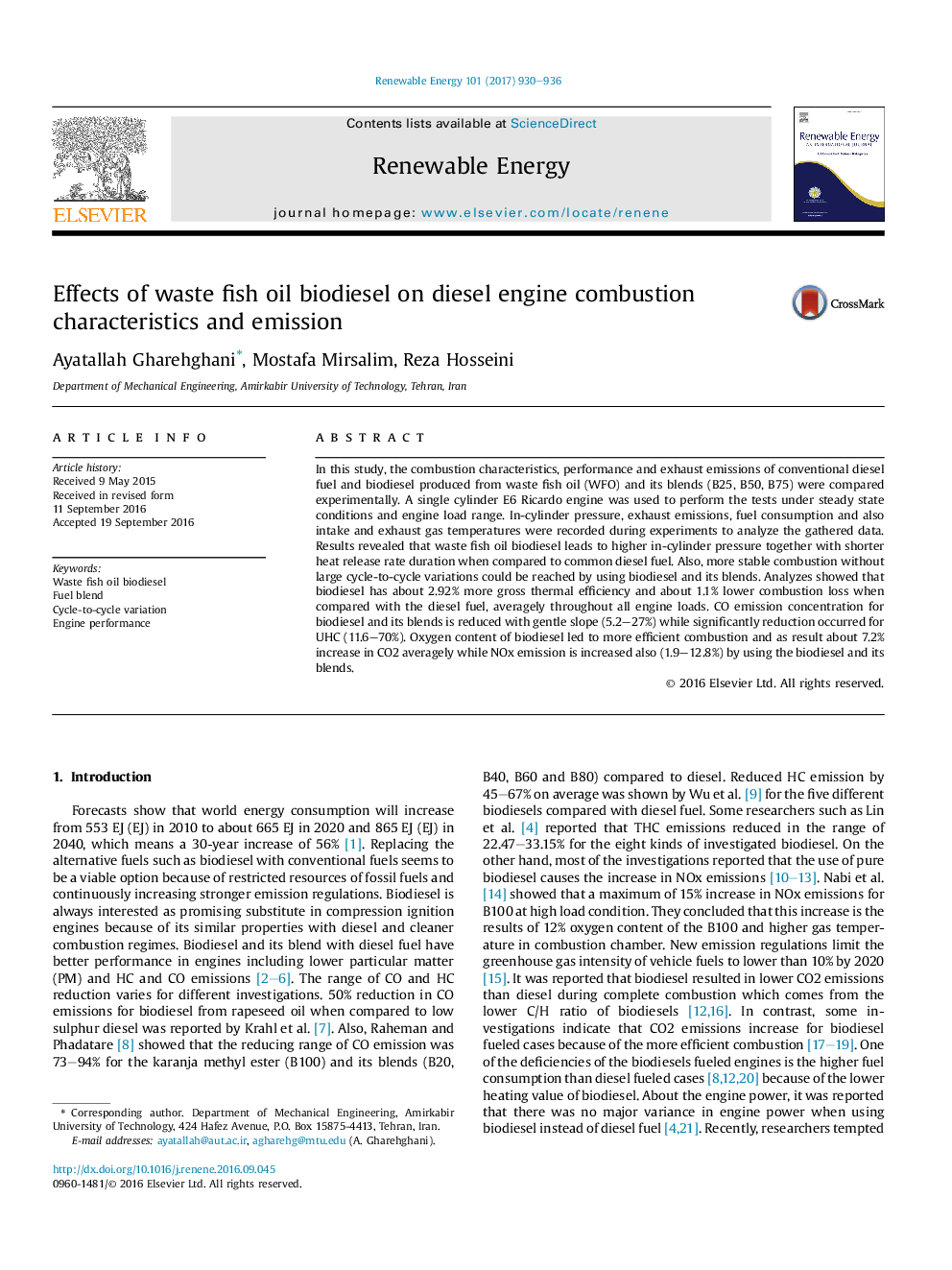| Article ID | Journal | Published Year | Pages | File Type |
|---|---|---|---|---|
| 4926940 | Renewable Energy | 2017 | 7 Pages |
Abstract
In this study, the combustion characteristics, performance and exhaust emissions of conventional diesel fuel and biodiesel produced from waste fish oil (WFO) and its blends (B25, B50, B75) were compared experimentally. A single cylinder E6 Ricardo engine was used to perform the tests under steady state conditions and engine load range. In-cylinder pressure, exhaust emissions, fuel consumption and also intake and exhaust gas temperatures were recorded during experiments to analyze the gathered data. Results revealed that waste fish oil biodiesel leads to higher in-cylinder pressure together with shorter heat release rate duration when compared to common diesel fuel. Also, more stable combustion without large cycle-to-cycle variations could be reached by using biodiesel and its blends. Analyzes showed that biodiesel has about 2.92% more gross thermal efficiency and about 1.1% lower combustion loss when compared with the diesel fuel, averagely throughout all engine loads. CO emission concentration for biodiesel and its blends is reduced with gentle slope (5.2-27%) while signiï¬cantly reduction occurred for UHC (11.6-70%). Oxygen content of biodiesel led to more efficient combustion and as result about 7.2% increase in CO2 averagely while NOx emission is increased also (1.9-12.8%) by using the biodiesel and its blends.
Related Topics
Physical Sciences and Engineering
Energy
Renewable Energy, Sustainability and the Environment
Authors
Ayatallah Gharehghani, Mostafa Mirsalim, Reza Hosseini,
